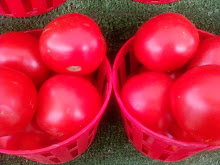
Antarctica's native marine life is under threat from invasions of king crabs and other predators, researchers said today. As Earth's oceans heat up because of global warming, king crabs will likely expand into waters that were previously too chilly for them to survive. "They're poised to invade the shallower waters," said Richard Aronson of the Dauphin Island Sea Lab in Dauphin Island, Alabama. Once established in their new habitat, the crabs will decimate native species that are unable to cope with strong, fast-moving predators that can crush their shells, Aronson said. "Now is the time to take action to prevent them having an impact," Aronson said at the annual meeting of the American Association for the Advancement of Science in Boston, Massachusetts. "We know what these crabs are going to do if they get into the shallow waters," he added. "It's like watching a train wreck." (Related news: "Giant Crab 'Red Army' Invades Norway" [March 9, 2004].)Sharks could also move into the Antarctic if the region warms several degrees, according to another study.Cheryl Wilga and Brad Seibel, of the University of Rhode Island in Kingston, analyzed sharks' metabolism and predicted that the predators could survive in oceans off Antarctica.If that happens, the scientists predict that shrimp, ribbon worms, and brittle stars will likely be the most vulnerable.Established PopulationKing crabs usually live on the deep ocean floor. In the past few years, at least 14 subspecies have been spotted on seafloors off Antarctica. Now researchers have found them even closer to the continent, near shallower waters. Sven Thatje, of the University of Southampton in England, led a recent project that used a robotic submarine to survey the ocean floor near the Antarctic Peninsula for predators. (See a map of Antarctica.)Because of global warming, "the Antarctic Peninsula is one of the most rapidly changing areas on Earth," Thatje said. "When we came up the continental slope, at around 1,100 to 1,300 meters (3,600 to 4,300 feet), we found king crabs," he said. With the discovery of adult and juvenile crabs, "we have to consider it a very established population," Thatje said. "They're on the doorstep" of shallower water surrounding the continent, he added. In most oceans, deeper waters are colder. But because of currents swirling around Antarctica, shallow waters near shore are slightly colder than deep waters farther off the coast, keeping the king crabs at bay—for now. "Just 1.8 degrees Fahrenheit (a degree Celsius) of further warming and these predators will move in. There's no doubt," he said. Evolutionary ThrowbackThe continental shelf ecosystem around Antarctica is an evolutionary throwback, according to a study published in December by Aronson, Thatje, and colleagues in The Annual Review of Ecology, Evolution, and Systematics. There species such as giant sea spiders, brittle stars, and marine pillbugs have flourished since Antarctica made the switch from temperate to icy about 40 million years ago. "The shell-cracking predators that dominate bottom communities in temperate and tropical waters have been shut out of Antarctica for millions of years because it is simply too cold for them," Aronson of the Dauphin Sea Lab said. "Fast-moving, bone-crushing crabs, fish, sharks, and rays are keystone predators in most places, but they cannot operate in the icy waters of Antarctica," he added. With the absence of these predators, animals that were common hundreds of millions of years ago thrive around Antarctica. But that's set to change with king crabs just next door. "These crabs feed on anything," Thatje of the University of Southampton said. "They can crush mussels and starfish." Proactive Solutions? In this new scenario king crabs and other predators would likely spread from the Antarctic Peninsula to the entire continental shelf, the researchers say. In the long run the only way to prevent changes to these shelf communities is to curb global warming, Thatje said. (Learn about ways to halt global warming.)But in the short run tighter controls on ships navigating around Antarctica could slow the pace of the predator invasion, Aronson argued, since many invasive species are spread through ships' ballast water. "There [are] proactive things we can do to decrease the chances of invasion," he said.











